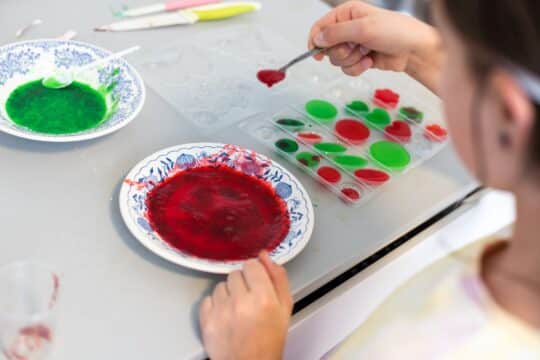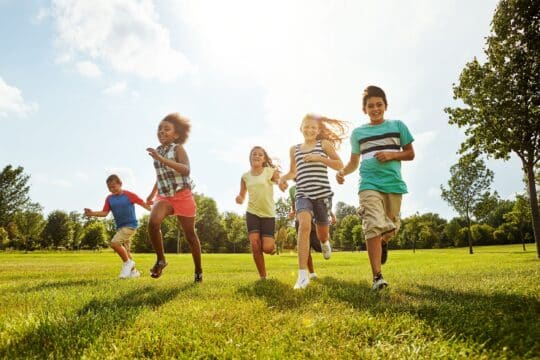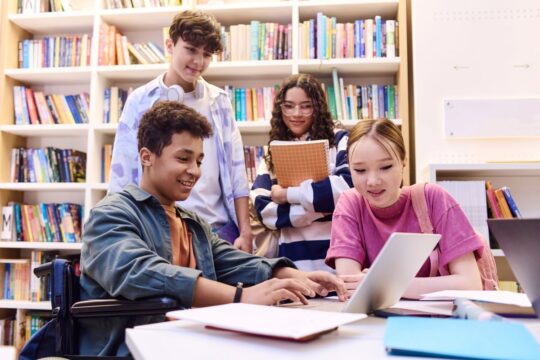Many kids love getting lost in fantasy and adventure stories—and who can blame them? Those books are fun, fast-paced, and full of imagination. But kids also enjoy reading about real people, real places, and events that actually happened.
The thing is, fiction usually steals the show. But the truth? Real stories can be just as exciting and even more meaningful. Biographies, in particular, can teach kids powerful life lessons and give them background knowledge that helps across every subject in school.
Let’s take a closer look at why biographies are worth reading and which ones tend to spark the most interest in young readers.
Why Biographies Matter
Biographies aren’t just stories from the past. They’re full of heart, courage, and lessons that stick with you long after the last page. Here’s what makes them stand out.
They Introduce Kids to Real-Life Role Models
It’s one thing to read about a made-up hero who conquers a dragon, but it’s another to read about a real person who faced fear, failure, or prejudice and kept going anyway. Biographies show kids that greatness isn’t reserved for the rich or famous.
It’s often found in everyday people who stay true to their values, work hard, and make a difference. Whether it’s someone who became the first to break a barrier, speak out against injustice, or invent something we now take for granted, these stories remind kids that they, too, have the potential to leave their mark on the world.
They’re Packed With Life Lessons
Every biography is a behind-the-scenes look at someone’s journey, the highs, the lows, and everything in between. Reading about someone who failed multiple times before finding success can be especially powerful. It normalizes the ups and downs of life and helps kids understand that growth often comes through struggle.
They Bring History to Life
History can feel like a jumble of dates and names when taught out of context. But when kids read about someone who lived through an event, whether it’s the Civil War, the moon landing, or the Civil Rights Movement, it becomes personal and it sticks.
Biographies put a human face to history. Instead of memorizing facts, students feel like they’ve traveled back in time and walked alongside someone who experienced it all firsthand. That kind of learning is unforgettable.
Biographies Kids Actually Want to Read
Now that we’ve talked about why biographies matter, let’s look at some engaging categories and titles that resonate with young readers. There’s something here for every interest, from politics and science to adventure and activism.
Presidential Lives and Leaders
Biographies about U.S. Presidents can give kids insight into the foundations of our country and the qualities that define leadership.
Titles about George Washington, Abraham Lincoln, and Theodore Roosevelt offer powerful glimpses into courage, innovation, and resilience. And it’s not just the Founding Fathers—more recent figures like Barack Obama and Jimmy Carter offer a more modern lens on what it means to lead with compassion and vision.
For students fascinated by the military or U.S. history, stories about leaders like Ulysses S. Grant, Dwight D. Eisenhower, and Robert E. Lee can also spark curiosity and deepen understanding of complex events like the Civil War and World War II.
Try these:
- Who Was Abraham Lincoln? by Janet B. Pascal
- I Am George Washington by Brad Meltzer
- Kid Presidents: True Tales of Childhood from America’s Presidents by David Stabler
Adventurers and Explorers
If your students enjoy thrilling stories, biographies of explorers are gold. Christopher Columbus, Ferdinand Magellan, and James Cook braved the unknown and changed how we view the world.
Space exploration is another huge hit, kids are captivated by astronauts like Neil Armstrong, Sally Ride, and Mae Jemison. Their journeys into the vast unknown not only tell the story of science but of bravery, curiosity, and human determination.
Try these:
- Who Was Neil Armstrong? by Roberta Edwards
- The Story of Ruby Bridges by Robert Coles (while not a traditional explorer, her bravery in uncharted social territory makes her a modern-day explorer of justice)
- To the Stars! The First American Woman to Walk in Space by Carmella Van Vleet and Kathy Sullivan
Trailblazing Women
Biographies of strong women show kids that determination knows no gender. Girls and boys alike can be inspired by the stories of Amelia Earhart, Rosa Parks, Harriet Tubman, and Malala Yousafzai. Helen Keller’s biography opens up conversations about perseverance in the face of seemingly impossible obstacles.
Jane Goodall’s passion for animals encourages kids to connect with the natural world. And Katherine Johnson’s work with NASA proves that math and science careers aren’t just for men. These stories are powerful reminders that history is full of women who dared to defy the norms of their time.
Try these:
- Who Was Rosa Parks? by Yona Zeldis McDonough
- Amelia Earhart (Little People, BIG DREAMS) by Maria Isabel Sánchez Vegara
- Helen’s Big World: The Life of Helen Keller by Doreen Rappaport
Biographies in Science
Curious minds light up when they learn about real inventors and scientists who changed the world. Kids who love to ask questions will be fascinated by Thomas Edison and the birth of electricity, or Alexander Graham Bell and the invention of the telephone.
Modern innovators and engineers of modern technology can also appeal to tech-savvy students who are growing up in the age of smartphones and AI. These stories help kids see how creativity and persistence go hand in hand.
Biographies in science also give students the chance to explore careers they might not have considered and encourage them to follow their own ideas, no matter how “out there” they may seem.
Try these:
- Who Was Thomas Edison? by Margaret Frith
- Alexander Graham Bell: An Inventive Life by Elizabeth MacLeod
- Hidden Figures: The True Story of Four Black Women and the Space Race by Margot Lee Shetterly (Young Readers’ Edition)
Fiction is fun to read, and there’s always room for imagination in a child’s reading life. But biographies offer something uniquely powerful. They show students what it looks like to face the real world with courage, creativity, and heart. By adding more nonfiction stories to your shelves, you’re giving kids more than just facts. You’re giving them stories of courage, hope, and possibility.




